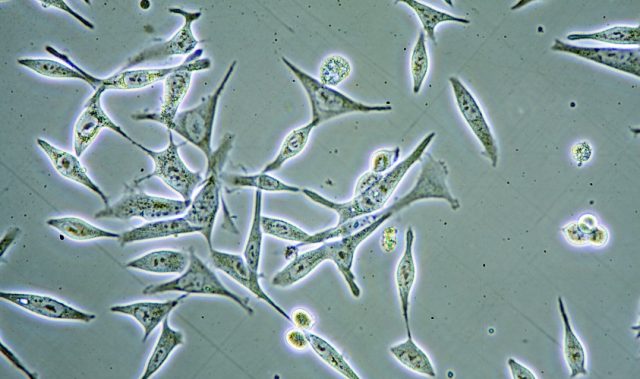
AsianScientist (Oct. 20, 2017) – Close your eyes for a moment and think about what a scientist might look like. If I had to venture a guess, you probably conjured up the image of someone with gloves on, wearing a white lab coat and a pair of thick safety goggles. This is the easy part—all you’ve described is the safety gear that a scientist puts on when carrying out experiments in the lab. It’s all very stereotypical, but absolutely necessary to ensure that scientists aren’t harmed by some of the hazardous substances that they work with.
Now, think about how you might identify a scientist when he or she steps out of the lab. Without the conspicuous attire, you’d be hard pressed to pick out a scientist amidst a crowd. But if you’ve watched enough television series involving behavioral profilers, you’ll understand that occupational habits can sometimes betray identity.
So how do you tell if someone’s a scientist? Here are six subtle signs to look out for.
- They’re always casually dressed
- They keep odd hours
- They use jargon
- They get excited about science news
- They scruff your pet hamster
- They uncap their water bottles with one hand
Most scientists cannot tolerate being in formal attire, preferring to opt for the T-shirt and jeans getup instead. However, this general aversion of formalwear stems from logic rather than laziness or lack of personal grooming—if you’re going to cover yourself up in the lab coat anyway, why bother putting on anything fancy? Your co-workers are all bent over their 96-well plates pipetting away, so who’s going to notice that nice new outfit? Besides, if you get Coomassie dye on something expensive, it’s never going to wash out and you’ll only have your vanity to blame.
Another reason why there’s no reason for scientists to dress well—more likely than not they’re in the lab before the sun comes up, and they may not leave until the sun rises the morning after. Such odd hours are inevitable due to time-point experiments, the bane of a scientist’s social life. ‘I Don’t Wanna Miss A Thing’ might very well be the late night soundtrack of a scientist who’s collecting samples once every four hours over three days. Unsurprisingly, the strong scent of coffee is another hint that someone is a scientist by day and night. That, and the periorbital puffiness—also known as eyebags—they frequently sport.
If there’s a complicated word for a simple item or action, you can bet that the scientist will use it in everyday conversation or writing. Instead of ‘mixing,’ they might say ‘vortex’ or ‘agitate or ‘resuspend.’ They don’t ‘pour,’ they ‘decant.’ They don’t ‘distribute,’ they ‘aliquot.’ Peek inside their recipe book and you might find scribbles of ‘incubate at 180 degrees Celcius until yeast-laden flour and water composite rises.’ The vocabulary comes with the profession, so don’t be too hard on them for being unintentionally incomprehensible.
As you scroll through your Facebook feed, you might come across a friend waxing lyrical about ‘human genome contains Neanderthal DNA’ or ‘the mixing angle sin22θ13 ˃ 0’. That friend has got to be a scientist. While the rest of the world might simply shrug and say, ‘So what?’, those in the scientific community appreciate the implications of science that makes headlines, as well as the long hours of hard work that have gone into making a groundbreaking discovery.
The average person approaches a pet hamster (or some other domesticated rodent of choice) by lowering a hand into the cage with the palm facing up and gently coaxing the furry critter to hop on. A scientist has a completely different method of handling rodents—he or she will instinctively reach for the nape of your hamster’s neck and immobilize it in a secure scruff. Fret not, your pet hamster will be completely fine; if a scientist wanted your rodent dead… well, let’s just leave it at that.
This action is a dead giveaway that someone is a scientist, or at least, a biologist. An essential skill in the lab is the ability to manipulate bottle caps with one hand, leaving the other hand free to hold a pipette or a syringe. So, if you ever notice someone absentmindedly reach out for a water bottle and uncap it with just one hand, chances are he or she is working or has worked in a lab. You could go over and ask about their research, but if it turns out you’re talking to a PhD student, don’t ask about the progress of the thesis.
———
Copyright: Asian Scientist Magazine; Photo: Shutterstock.
Disclaimer: This article does not necessarily reflect the views of AsianScientist or its staff.













